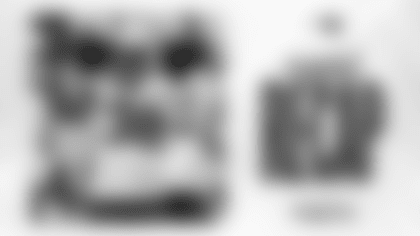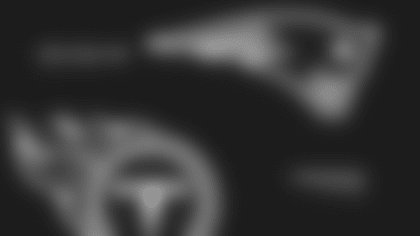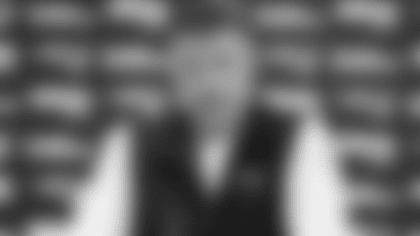NASHVILLE, Tenn. (May 7, 2007) -- Since January 2000, Adam "Pacman" Jones' attorneys count at least 283 NFL players who have been arrested or charged for offenses ranging from drunken driving to domestic violence to weapons possession.
None was suspended a full season for personal conduct, a punishment Jones' attorneys say was "unprecedented in its severity."
That's part of the Titans cornerback's plea for leniency in a 24-page letter sent to the NFL and posted on The Tennessean newspaper's Web site.
NFL spokesman Greg Aiello declined comment on the confidential document.
Attorney Mark Trigg of Atlanta, who wrote the letter, confirmed it was authentic and had been sent to the NFL. But he declined to discuss the letter further, citing the confidentiality of the league's appeal process.
"We did not intend for the letter to be made public out of respect for the league and other players referenced in the letter, even though each of those arrests are a part of public record," he said.
The letter, dated May 1, was sent to the league's labor relations counsel. It does not include Jones' own five arrests since the Titans drafted him in April 2005, nor the 10 times he has been interviewed by police over the past two years.
Jones will meet with NFL commissioner Roger Goodell on Friday in New York to appeal. Last month, the commissioner suspended Jones for 2007 and Cincinnati receiver Chris Henry for eight games, warning both this was their last chance to salvage their careers.
The Titans have said Jones must change his behavior off the field before they let him return. They drafted safety Michael Griffin last month to help replace him in their secondary.
The letter claims Goodell based his decision on three incidents:
-- Failing to report a Feb. 6, 2006 arrest in which Jones was charged with a felony charge of obstruction of a police officer.
-- Failing to report a March 23, 2006 arrest for marijuana possession.
-- Being charged Aug. 25, 2006 with public intoxication and disorderly conduct.
Jones' attorneys want the NFL to have someone present Friday who can address the various other NFL player arrests, including 11 Titans, and how they were disciplined.
Dragging up the NFL's recent past could be a strong argument, according to some attorneys watching the case. But they said bringing up cases that occurred under ex-commissioner Paul Tagliabue to appeal the new commissioner's punishment will probably not help. Goodell took over for Tagliabue in September.
Jay Reisinger of Pittsburgh, who advised Sammy Sosa when he testified about steroids before the U.S. House of Representatives in 2005, said prior arrests or convictions of other NFL athletes will have little or no bearing on Jones' appeal.
"I think the NFL has made it clear they're strengthening their personal conduct policy and putting more emphasis on it," Reisinger said.
Vice chancellor David Williams teaches a sports law class at Vanderbilt that studies current events. He also oversees the school's athletics and has followed Jones' case. He said although Jones' attorneys want to show inconsistent treatment, consistency is only needed at any given moment.
"At this point in time, I think what the commissioner and the rest of the owners, if you like, what they're trying to do is they're trying to preserve or increase a public image of their product," he said.
Under his suspension, Jones has several conditions he must meet to have his case reviewed after the Titans' 10th game of the season. One of those is avoiding "adverse" involvement with police, but Las Vegas police still are investigating a strip club fight and triple shooting during the NBA All-Star weekend.
The letter, first reported by ESPN.com on Sunday, concludes by reserving Jones' right to "any and all other legal remedies which may be available to him" after the commissioner's decision on the appeal.
"If this ends up going into court and a court basically rules against the commissioner in that, that would open up a huge can of worms," Vanderbilt's Williams said.






























